The 9 Best Vermouth Substitutes for Cooking and Cocktails

There are some ingredients that you can intuitively pick substitutes for in a pinch, but vermouth substitutes are different. You probably aren’t even sure what vermouth is, so trying to select a vermouth substitute for a recipe is going to be tough. The good news is that vermouth alternatives are as simple as milk for cream or baking powder for baking soda.
The name vermouth sounds exotic, but it’s pretty straightforward. Those who are familiar with it recognize it as a key ingredient for their martini or Manhattan. But vermouth has applications beyond cocktails and is as handy a pantry staple as white or red wine vinegar.
So what is vermouth? Is there more than one kind? If you decide to buy a bottle, what else can you use it for? It’s very useful to know what you can use as a vermouth substitute so you won’t ruin your drink or dish.
- What Is Vermouth?
- Best Dry Vermouth Substitutes for Cooking and Cocktails
- Sweet Vermouth Substitutes for Cocktails
What Is Vermouth?
Before you worry about vermouth substitutes, you’ll first need to understand what vermouth is. Vermouth is a fortified wine, which means that it’s a wine that has been stabilized by the addition of alcohol. Vermouth was invented in Italy in the 1700s and was used medicinally before becoming more popular as a beverage ingredient in the 1800s.
More elegantly, vermouth is known as an aperitif, which means it is a liquor that has been enhanced with fragrant additives like herbs, spices or aromatic roots. In some countries, sipping vermouth straight is a common pre-dinner drink or an after-dinner digestif. It can also be used in a variety of cooking applications. Therefore, vermouth substitutes differ depending on whether your application is food or drink.
You’ll find two different kinds of vermouth on the shelves — sweet and dry — and it is important to know the difference. These two products are not interchangeable, and dry vermouth is not a substitute for sweet and vice versa. If you are a budding at-home bartender, check out some online mixology classes to learn more about how to use this product. That will also make it easier to choose a vermouth alternative when you need one.
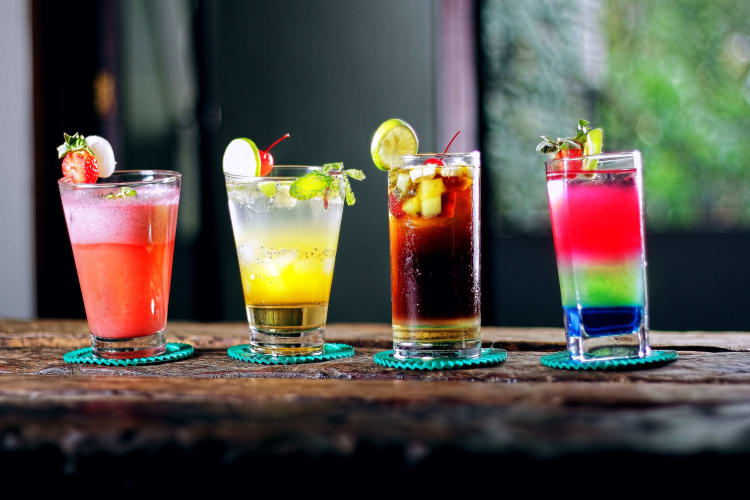
Vermouth in Cocktails
Vermouth is one of those small-dose ingredients that defines a proper cocktail. The classic martini wouldn’t be anything without a touch of dry vermouth, and your Manhattan would just be a bourbon on the rocks without sweet vermouth. For cocktails like these, it’s important to choose your vermouth replacement carefully.
Dry vermouth is clear in color and adds a subtle bitterness to a cocktail. A barely traceable hint of something aromatic like a fresh pine tree branch. It tames the sharp edges of vodka or gin with just the right amount of sophistication. A dry vermouth substitute should be colorless but still contain aromatics.
Sweet vermouth is deep-red in color with just a hint of caramel. It pairs well and is usually combined with bourbon-based cocktails, but not exclusively. The modernly popular Negroni gets its signature color from combining sweet vermouth with gin. Sweet vermouth can also be enjoyed with a simple soda and a squeeze of lemon juice (that’s a highball) and makes for a low-ABV cocktail if you want to pace yourself at lunch.
Sweet vermouth alternatives are most appropriate for cocktail recipes as it is rarely used in food dishes. For sweet vermouth substitutes, it is more important to get a sweet lift than to worry about color, though that depends on how critical the color is to your recipe.
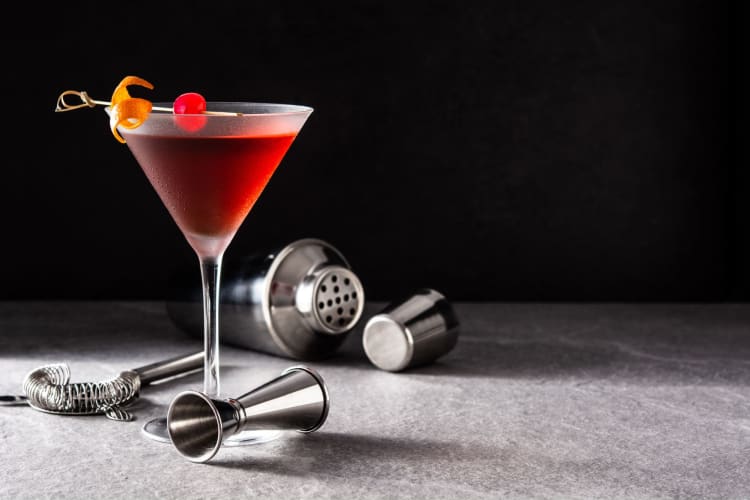
Purpose of Vermouth in Cooking
Outside of cocktail recipes, vermouth is sometimes used to add sophistication and a little more depth to food. It makes sense that dry vermouth lends itself more readily to cooking than sweet vermouth because of its subtle flavor and minimal impact on the color. Keep those characteristics in mind when choosing vermouth substitutes for food recipes.
Dry vermouth is also commonly used in recipes like veal saltimbocca or seafood dishes like lobster pot pie. If you like to experiment in the kitchen, you might decide to substitute vermouth in a recipe even if you have the wine that the recipe calls for on hand.
Much loved American chef Julia Child was a fan of using vermouth in her cooking. She was also the master of working with substitutes. It would be no issue for Julia to use a splash of sweet vermouth in her boeuf bourguignon if she was out of Chianti or some dry vermouth in a chicken fricassee if she was out of white wine.
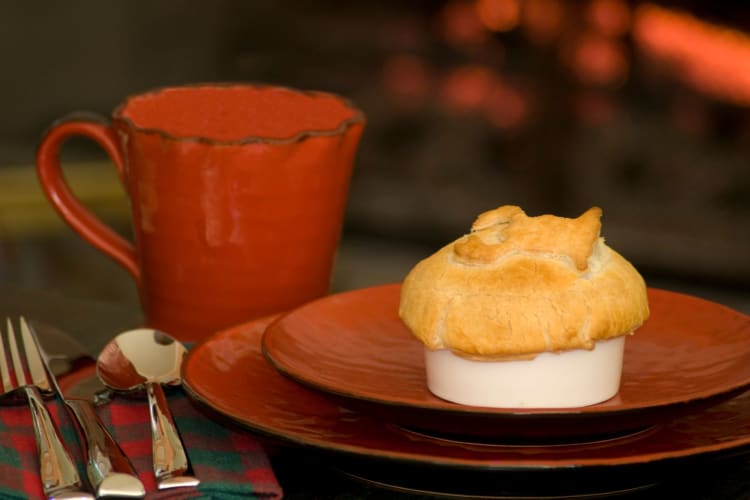
Best Dry Vermouth Substitutes for Cooking and Cocktails
1. Dry White Wine
Because dry vermouth is a fortified white wine, it makes sense that you can use white wine as a dry vermouth substitute. Stick to dry whites versus sweet for best results. This vermouth substitute makes sense for both food and cocktail applications.

2. Lemon Juice
It’s not a perfect dry vermouth substitute, but using lemon juice will give you a citrusy punch and the hint of aromatics that you need in a cocktail application. Lemon juice is also a useful dry vermouth substitute in cooking applications.
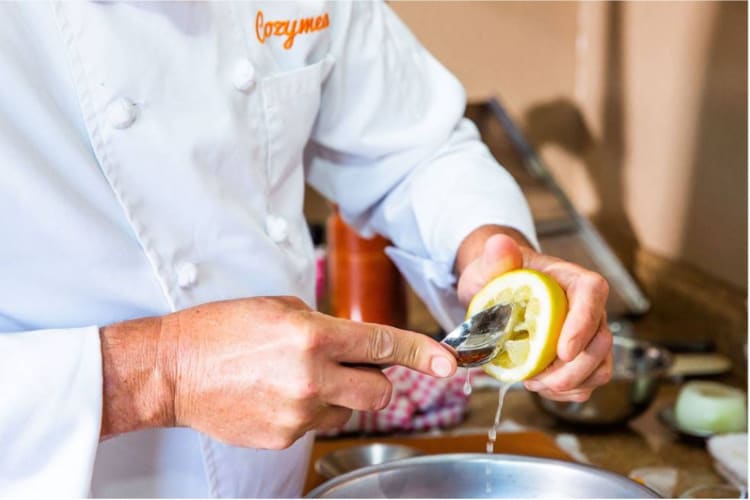
3. Vinegar
As with lemon juice, vinegars are a decent alternative when you need a dry vermouth substitute. White wine vinegar or Champagne vinegar would be the best choice over red or balsamic if you need a dry vermouth substitute. This application is best used in cooking rather than cocktails. Use it conservatively and taste as you go.
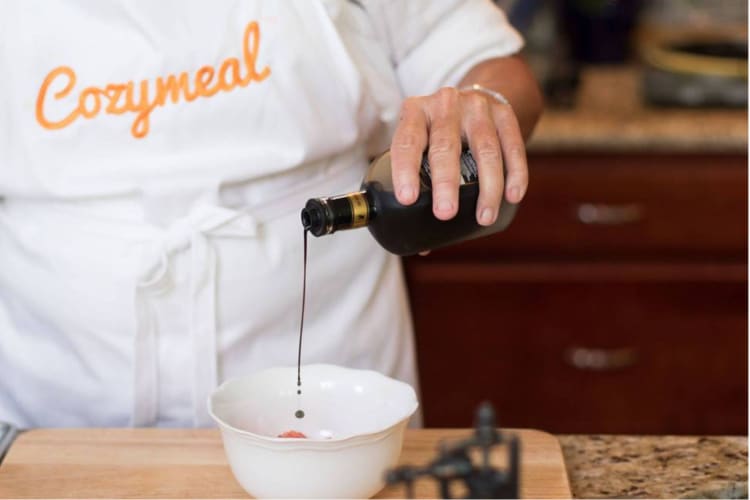
4. Lillet Blanc
Lillet Blanc is another aperitif that is used to enhance cocktails. It’s somewhat citrusy compared to dry vermouth but would be the best substitute if you happened to have it on hand. That said, if you don’t have dry vermouth on hand, you probably don’t have Lillet either.

5. Pernod
It’s a long shot for sure, but in the rare event that you have Pernod on the shelf, this is a good substitute for dry vermouth in cooking and cocktail applications. Pernod has a licorice flavor which works surprisingly well with seafood dishes. Just be careful using this substitute in a cocktail as it could quickly overpower the other flavors.

Sweet Vermouth Substitutes for Cocktails
6. Red Wine
It's no surprise that a good sweet vermouth substitute is a splash of sweet red wine. Grab that cheap Beaujolais Nouveau that your neighbor gave you at New Year’s because now’s the time to use it. If you don’t have any sweet reds on hand, use a dry red wine and a little simple syrup. Liquor.com provides a lovely way to make this easily in the microwave if needed.

7. Port
Dessert reds make great sweet vermouth substitutes for cocktail applications, and you can use a 1:1 ratio.
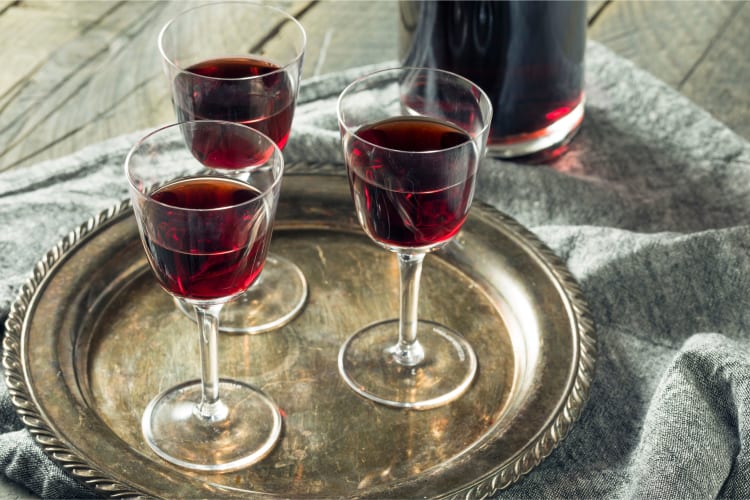
8. Amaro
Amaro is a family of Italian-style liquors including recognizable brands like Campari and sweet Aperol. Because these are more popular in today’s mixology world, they are a great sweet vermouth substitute that also has other functional cocktail applications.

9. Sherry
Sherry is another acceptable sweet vermouth substitute if you have it; just make sure you are using sherry wine (cooking sherry) and not sherry vinegar.

Craft cocktails are gaining in popularity, so it’s always good to learn a little more about the unique ingredients that define them. Now that you are familiar with dry and sweet vermouth, perhaps you’ll be inspired to buy a bottle so you won’t have to Google vermouth substitutes next time you need one. And when it comes to using vermouth for the perfect martini or Manhattan, there really is no substitute for the real thing.
For even more ways to explore your favorite foods and drinks, check out other experiences happening on Cozymeal.
